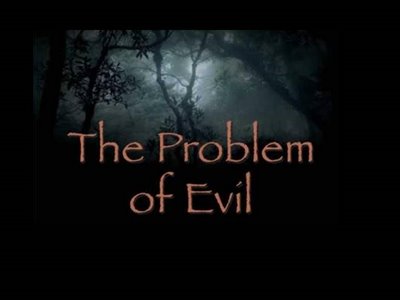One of the greatest objections to theistic religions, especially Christianity, is the inherent problem of evil. The question is asked, “How could a loving, powerful God allow evil to exist?” Some would answer that God is loving, but not really all-powerful. Thus, such a person would answer that God loves, but is unable to stop evil from occurring. However, this cannot be an accurate biblical answer as the Bible proclaims God as an omnipotent God. Job said to God, “I know that You can do anything and no plan of Yours can be thwarted.” (Job 42:2). In Revelation, God says “I am the Alpha and Omega…the One who is, who was, and who is coming, the Almighty” (Revelation 1:8). Others would claim that God is powerful, but unloving; unconcerned with the woes of humanity. But biblically, such a theory could not be supported. God is said to be the embodiment of love. John writes in 1 John 4:8, “θεὸς ἀγάπη ἐστίν.”[1] Love is an attribute of God. Thus, God is concerned about humanity because it is in His nature to love. So how does one find a working answer to this problem? It is believed that an answer is found in the story of Joseph. Joseph was sold by his brothers into slavery. What was a horrible act was turned on its head in the end. Joseph was elevated to a high position in Egypt and eventually helped save his family. Joseph said to his brothers, “Don’t be afraid. Am I in the place of God? You planned evil against me; God planned it for good to bring about the present result—the survival of many people” (Genesis 50:19-20). In this writer’s opinion, three fundamental positions are presented from Joseph’s statement. It will be the intent of this article to argue that God’s omnipotence and omnibenevolence are compatible in a world of evil if God works evil things for good. In order to accomplish this, the article will examine the foreknowledge of God, God’s permissive will in allowing free evil acts, and the sovereign control of God in order to work things for good.
God Knows All That Would Happen
Perhaps one of the most difficult aspects of God to fathom is God’s involvement in time. It is agreed with William Lane Craig that “given the reality of tense and temporal becoming, the most plausible construal of divine eternity is that God is timeless without creation and temporal since creation.”[2] Yet, one would still wonder whether God is completely temporal at this moment since God is both transcendent and immanent in creation. Nonetheless, God holds knowledge of things that will take place with certainty. For instance, God said to Jeremiah, “I chose you before I formed you in the womb; I set you apart before you were born. I appointed you a prophet to the nations” (Jeremiah 1:5). Paul presents the same idea in Romans when he posits concerning Jacob and Esau that “though her sons had not been born yet or done anything good or bad, so that God’s purpose according to election might stand—not from works but from the One who calls—she was told: The older will serve the younger” (Romans 9:11-12). These passages demonstrate that God had perfect knowledge of what was to come. If this is true, then is able to work things for a certain end. Therefore, it is completely reasonable to posit that God is a transcendent, omniscient entity that knows all things past, present, and future. With the case of Joseph, God knew all the events that would take place in order to bring about a certain end.
God Allowed Sin to Take Place but Did not Initiate the Sin
Being that God possesses foreknowledge of individuals and events, God knows the evil that would take place. However, God does not personally perform acts of evil because God is holy. Feinberg is correct when postulating that “God didn’t create us with an inclination toward sin, but even Adam in ideal surroundings and circumstances sinned.”[3] The reason that Adam chose to sin is because of the free will that God granted to Adam. Theologically, free will is an area of debate. How much freedom does the human actually possess? Yet, most, if not all, theological systems would at least concede that humans have the responsibility to make decisions, whether good or bad. God would know that such decisions were to be made before they were made. This freedom to make decisions comes with consequences. Jerry Walls states that “When God created beings with free will, he created the possibility of hell.“[4] Even with this human freedom, God has sovereign control. The psalmist writes, “Before a word is on my tongue, You know all about it, Lord” (Psalm 139:4). Thus even a person’s free decisions are under the sovereign knowledge of God. If so, then nothing occurs beyond the power and knowledge of God. Evil may occur, but it is not directly brought forth by God.
God Works so that the Evil Brings Forth a Greater Good
Paul concisely posits that “all things work together for the good of those who love God: those who are called according to His purpose” (Romans 8:28). Paul’s beautiful theological treatise demonstrates that while evil may transpire, God is working all things towards a greater good. Joseph’s story is an example of God’s ability to transform horrible events into great blessings. Perhaps the greatest example of this concept is found in the death of Christ. Christ death brought about the salvation of countless individuals. Therefore, a loving, powerful God may have reasons for allowing evil to exist.
Conclusion
This article has demonstrated that it is possible for a loving, powerful God to coexist with the allowance of evil in the world. Like Joseph realized, modern Christians need to understand that bad things that occur individually and/or corporately do not prove that God does not exist. Neither do bad things indicate the lack of love that God holds for an individual. Rather, one should understand that God may allow bad things to transpire to bring forth a greater good. The Christian leader need not avoid the problem of evil. In fact, when the Christian leader and theologian rightly handle the problem of evil, many Christians will be blessed in knowing that the bad things that they face may have good purposes in the end. In addition, the believer can also take comfort in knowing that one day this loving, powerful God will vanquish evil and quarantine it for eternity.
Note: This work represents the academic work of Pastor Brian Chilton. The contents of this article have been submitted to the author’s university. Any attempt to improperly use the information found within this article for academic papers without proper citation may result in charges of plagiarism.
Bibliography
All Scripture, unless otherwise noted, comes from the Holman Christian Standard Bible. Nashville: Holman Bible Publishers, 2009.
Craig, William Lane. Time and Eternity: Exploring God’s Relationship to Time (Wheaton: Crossway, 2001), 241).
Feinberg, John S. No One Like Him: The Doctrine of God. Wheaton: Crossway, 2001.
Holmes, Michael W. The Greek New Testament: SBL Edition. Lexham Press, 2010.
Walls, Jerry L. “How Could God Create Hell.” In God is Great, God is Good: Why Believing in God is Reasonable and Responsible. Edited by William Lane Craig and Chad Meister. Downers Grove: IVP, 2009.
Copyright. Pastor Brian Chilton. 2014.
__________________________________________________________________________________________________________________________________________________________
[1] Michael W. Holmes, The Greek New Testament: SBL Edition (Lexham Press, 2010), 1 John 4:8.
[2] William Lane Craig, Time and Eternity: Exploring God’s Relationship to Time (Wheaton: Crossway, 2001), 241).
[3] John S. Feinberg, No One Like Him: The Doctrine of God (Wheaton: Crossway, 2001), 790.
[4] Jerry L. Walls, “How Could God Create Hell,” in God is Great, God is Good: Why Believing in God is Reasonable and Responsible, William Lane Craig and Chad Meister, ed (Downers Grove: IVP, 2009), 162.






